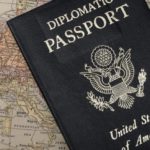Diplomatic Immunity Explained
A lot of the information that people get about criminal law comes from television. Most people that have ever watched a crime drama on television have seen some scenario where a crime is committed by one to the characters and eventually the police or the prosecutors come to the conclusion that they cannot do much about it because the suspect has “diplomatic immunity”. What is diplomatic immunity? Is this a real thing? How does it work?……With this blog we hope to answer some of these questions.
Most criminal charges stem from either violations of federal criminal law, or violations of state criminal law. Typically, when someone is charged with a crime, they face criminal prosecution in the form of fines, jail time and other consequences. Diplomatic immunity protects certain individuals from the consequences of criminal conduct.
What is diplomatic immunity?
- It is a protection given by foreign diplomats in the country they are residing in for their official duties. The purpose of this is to provide them protection from lawsuits and criminal prosecution. This means that if someone with this protection is suspected of committing a crime, they cannot be prosecuted. However, they can be expelled form the country. The country that the individual is representing holds the privilege of the diplomatic immunity, meaning that country can waive the diplomatic immunity protections of that individual.
Where did Diplomatic Immunity originate?
- Some form of diplomatic immunity has existed since ancient times, but the form in which is today was codified at the 1961 Vienna Convention on Diplomatic Relations. The United Nations has also added some clarification and additional agreements between participating countries.
Other aspects of diplomatic immunity
There are other aspects of diplomatic immunity besides criminal prosecution including but not limited to;
Someone with diplomatic immunity:
- cannot be subpoenaed or forced to testify in court
- may not be arrested or detained
- cannot have their residence searched by the police, without consent.
Criminal law on its own is very complicated. That is why criminal defense attorneys are often necessary when you have been charged with a crime. The concept of diplomatic immunity is just one more example of just how complicated things can get. If you have been charged with a crime in North Carolina or South Carolina, contact a criminal defense lawyer to discuss your options.
